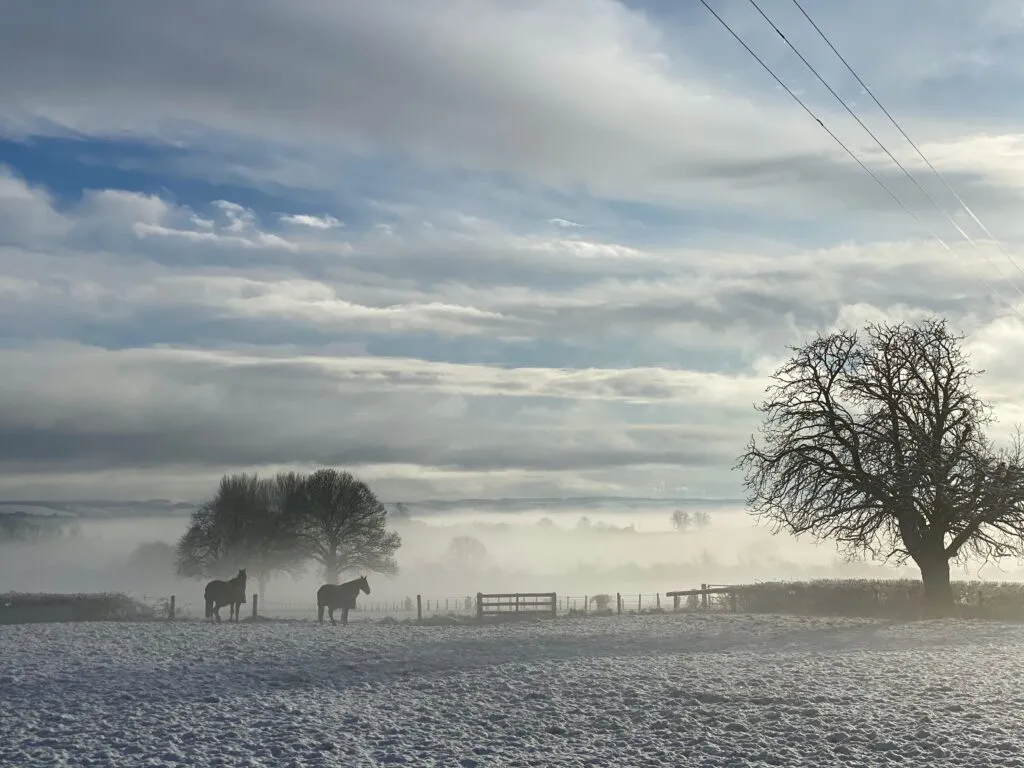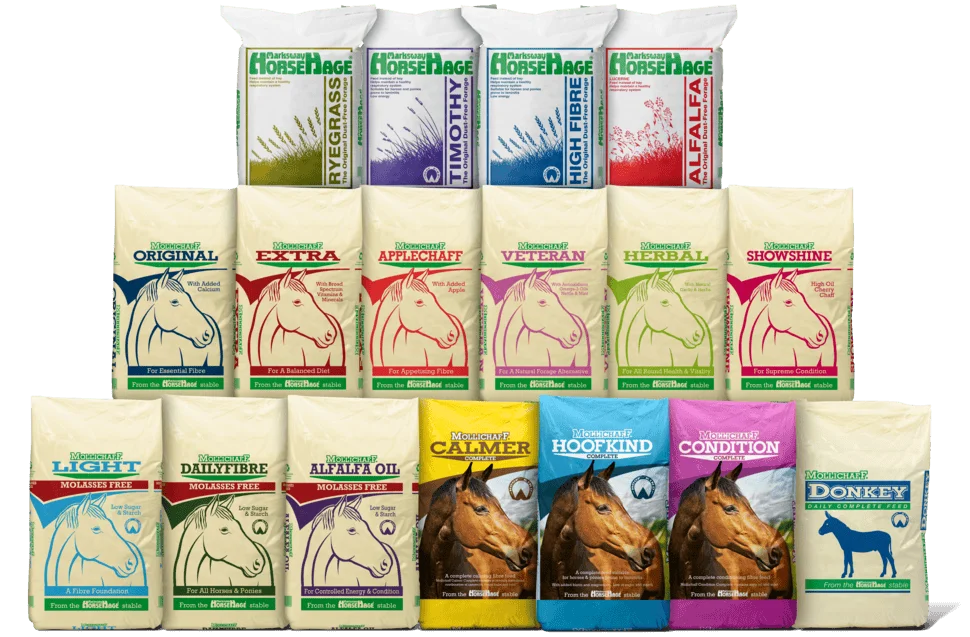
Horses are well-adjusted to coping with winter weather and for some it can be a useful tool for weight management. But it’s important that their nutritional needs are being met throughout the colder months so that they stay healthy and maintain good condition.
Weather conditions will vary over the winter months, as will each individual horse’s tolerance of the cold, so it’s important that you consider the information in this article as general guidance rather than hard and fast rules.
As with all feeding advice, your horse’s individual circumstances and requirements should be taken into consideration, and if you look after more than one horse or pony, dietary adaptations should be made on a case-by-case basis.
What to Feed Horses in Winter?
Basic equine nutrition needs don’t change significantly during the winter months but ensuring their nutritional needs are being met can become a challenge with a possible lack of grazing.
If your horse is living out full time, their diet may need to be supplemented with additional forage to ensure they are receiving the essential nutrition they require.
Forage
Whatever the season, forage and fibre should always form the basis of a horse’s diet. It is particularly important during the winter months to help regulate body temperature as when forage is digested it releases heat that helps keep your horse stay warm from the inside out.
It is essential that your horse’s fibre requirements are considered and catered for as many horses are stabled for long periods of time with limited access to grazing that may be lacking in quantity and/or nutritional quality.
Ensure you choose a good quality dust free consistent forage that suits your horses’ nutritional requirements. If your horse struggles with the long strands of forage you may need to consider providing additional sources of fibre such as chopped forage replacers or suitable mashes.
You should also keep in mind that the dark mornings and evenings, poor ground conditions and adverse weather could mean your horse’s workload is reduced significantly so the amount of energy they require may change. Careful consideration needs to be given to the type of forage being provided and whether lower energy feeds are required. On the other hand, if your horse remains in full work during the winter months (perhaps in competitions or hunting), their energy requirements will be higher.
Water
Dehydration can lead to impaction colic, which occurs when dried indigestible material obstructs the horse’s colon.
The first thing every horse or pony owner should do in the mornings is ensure the water source hasn’t frozen over during the night. If it has, break the ice up into smaller pieces and remove it. Consider floating a ball in the water to stop it from freezing.
Supplements
All horses and ponies, irrelevant of age or workload, should be provided with vitamins and minerals all year round to ensure a balanced diet. There are many ways to incorporate vitamins and minerals into your horses diet such as a suitable granulated supplement, balancer or a complete feed such as Mollichaff HoofKind Complete, Mollichaff Calmer Complete or Mollichaff Condition Complete.
It is unlikely that your horse will have a requirement for a specific winter supplement, and any products that claim to be a necessity for the winter specifically may not actually be necessary.
Hoof Supplements
During the summer months, horse and pony owners take particular care to ensure hooves do not become damaged from hard ground conditions – it’s just as important that a hoof care routine is maintained throughout winter too.
Targeted nutritional support can improve hoof quality and can reduce the occurrence of problems such as slow growth, cracks, and splits. Biotin is a B vitamin that can maintain and support healthy hooves, this should be a key ingredient in any hoof supplement you consider.
Digestive Aids
The digestive health of your horse can greatly benefit from some simple considerations such as providing a balanced diet that is consistent with good levels of fibre, keeping unnecessary stress to a minimum and making any changes in the diet slowly, including changes in forage and grass intake.
Digestive supplements may be beneficial when challenges are placed on dietary management such as a change in forage or on daily management such as travelling.
Before purchasing an additional supplement, check your current diet as there are many balancers and vitamin and mineral supplements that contain a digestive aid. Mollichaff Condition Complete includes Yea-sacc® and a prebiotic to help maintain a healthy digestive system.
High Fibre Forage Options for Winter
The HorseHage range contains four dust free forage options, HorseHage Ryegrass, HorseHage High Fibre, HorseHage Timothy and HorseHage Alfalfa. They are all consistent and provide an energy option suitable for your horse or pony.
Mollichaff Veteran can be used as a partial forage replacer for those who struggle with the long strands of traditional forages. If your horse or pony is on a weight management diet you may want to consider Mollichaff Light Molasses Free.
If you’d like to discuss the suitability of any of our products for your horse, please get in touch with our dedicated helpline on 01803 527274.
Want free nutritional advice?
Our friendly and knowledgeable team is available on weekdays from 9am to 5pm.
Give us a call at 01803 527274 or send an email to sales@horsehage.co.uk


